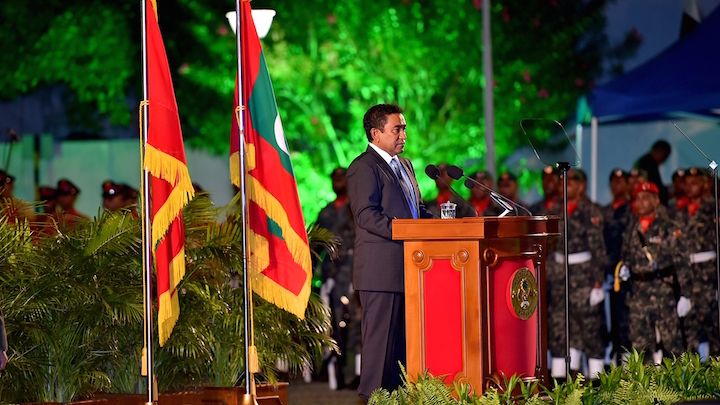Islam, traitors, economy: Yameen’s independence day address
The president’s address featured recurring themes: an alleged conspiracy by unnamed foreign powers to undermine the country’s Islamic identity, independence and sovereignty; the threat posed by “traitors” to peace and stability; and the importance of economic independence.

27 Jul 2016, 09:00
The following are translated extracts of President Abdulla Yameen’s Independence Day address to the nation. The speech was delivered after a flag-hoisting ceremony at 12am on July 26, which heralded the Maldives’ 51st anniversary of independence from British protectorate status.
The president’s address featured recurring themes of his speeches: an alleged conspiracy by unnamed foreign powers to undermine the country’s Islamic identity, independence and sovereignty; the threat posed by “traitors” to peace and stability; and the importance of economic independence.
On foreign pressure and “traitors”
The various parties who are jealous today because the Maldives remains an independent and 100 percent Islamic country are not few. Every day that the sun sets and rises is a day that the government is pressured to allow religions other than Islam; a day that warnings of imposing sanctions on Maldivians pour in because we enforce Islamic sharia and teach Islam in schools.
Become a member
Get full access to our archive and personalise your experience.
Already a member?
Discussion
No comments yet. Be the first to share your thoughts!
No comments yet. Be the first to join the conversation!
Join the Conversation
Sign in to share your thoughts under an alias and take part in the discussion. Independent journalism thrives on open, respectful debate — your voice matters.




